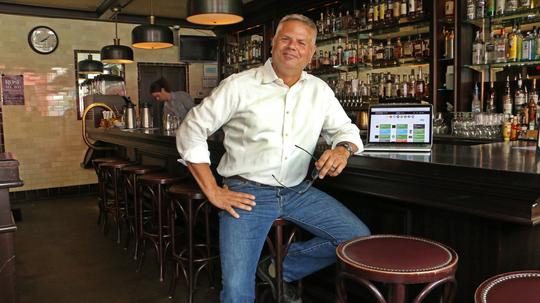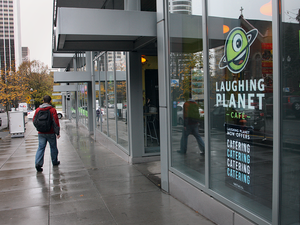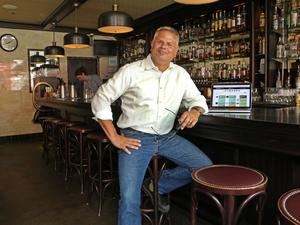
Portland software maker Poached has served up hiring tools for the restaurant and hospitality industry since 2012.
In the years since the Covid-19 pandemic took the industry to the brink, the company has worked to help employers adjust to the new reality of worker needs.
Poached, which employs 23 workers, is back to growing following the immediate slowdown at the onset of the pandemic, said co-founder and CEO Kirk Thornby.
Restaurants pay to post full-time jobs or to fill individual shifts on the Poached website. The company’s software allows clients to schedule interviews, track employee hours and rate worker performance, information that can help employers make smart re-hiring decisions.
The Poached job board has 6,500 positions listed. New this year are destination jobs in places like resort towns that struggle to find local talent. That includes resorts that serve Yellowstone National Park or Death Valley, for example. Thornby said one destination client garnered 200 to 300 applicants in the first couple days.
THE PBJ'S HOW OREGON WORKS FOOD AND BEVERAGE STORIES
Viewpoint: Portland must support food businesses to keep city special
Burgerville teams with Felton & Mary's to sauce this year's Walla Walla onions burger
Another popular product from Poached is a gig-economy offering that allows workers to pick up shifts as needed. Poached provides workers comp insurance and third-party liability. And employees are paid for their shifts the next day.
We caught up with Thornby to talk about the changing hiring situation for restaurants and the hospitality industry.
What have you seen from employers and job seekers now that we are a bit further from the height of the Covid pandemic? Covid was a sort of start-and-stop moment for us. But over the last year (business) has been growing nicely. There’s huge demand for shifts. During Covid, I think, about a third of the people left the industry and were like, “I’m not coming back.” But, we are seeing them trickle back in. And they are trickling in more selectively focused on “I want to be able to set my schedule better,” and also “I want to take advantage of these shift positions that usually pay a bit of a premium.” So, I think they are just picking and choosing their way. We have an abundance of people looking for gig work right now and we don’t have enough gigs for them, which is one of the things in the marketplace we are trying to balance out.
What are the roles that are appearing most for your shift product? The preponderance of the positions are dishwashers, line cooks, servers. And then we’re also doing housekeeping (for the hospitality industry). But, the bread and butter is really line cooks and dishwashers.
Where do you offer the shift product? We are doing great in Portland. Seattle is growing nicely. Austin is our third market. We’re beginning to fill in the rest of the country. We’re a national platform for jobs (and the job board). It’s really being able to find places where we have the most skilled workers and kind of build up enough of a pool, so that we have relationships with people that we trust. One of the nice things is that restaurants and caterers can roster people (in the database) so they can pre-select who they want to apply to their shifts.
Are you seeing employers using things like shift work as a kind of test run before offering full time employment? Exactly. And one of the challenges, and this is the can of worms we see in the data, is that not all workers want a full-time job. One of the things I took away from Covid was people want more money, which we’re seeing wage increases and that’s helped. And also I think working conditions and harassment issues, and all of those things have really begun to reset, which I think is one of the positive things to come out of Covid. But it’s also things like “I’m a mom,” or “I have school,” “And I have a life just like any other worker in this country.” I think it was already kind of assumed that hospitality workers only want to work until 2 a.m. because that’s what was fun. But, that has changed a little bit, that mindset.
What are you seeing locally in the Portland market in terms of the use of the job board or the shift work? The Portland hospitality community has fully embraced Poached. If you ask most workers in this town they’re gonna say they found their job on Poached. The trends I’m seeing is that so many people want shift work and we’re not getting enough shifts into our system from employers. We’re working with hotels and retirement communities and independent restaurants who normally wouldn’t use a staffing component for their schedules. So, they are beginning to use that. And then we have that kind of trial period (for workers). We have a hotel in town that staffed their kitchen for the first three weeks of opening almost entirely with shift workers to pump through and find the workers they wanted to offer full-time jobs.








